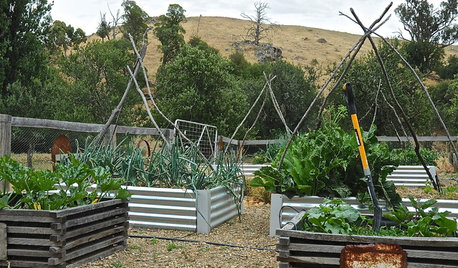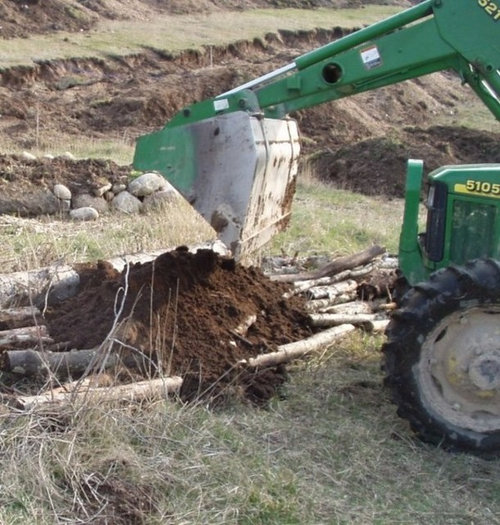Hugel
uscjusto
10 years ago
Related Stories

FARM YOUR YARD9 Ways to Change Up Your Vegetable Garden for the Coming Season
Try something new for edible plantings that are more productive than ever
Full StoryMore Discussions
All the information I've read about hugelkultur shows the wood as logs, branches, and other natural sources if wood. (See photo)
My question is has anyone used other sources of wood? I have a bunch of framing lumber like 2x6's that I don't need. Would that kind of wood be ok for a hugel or to put at the bottom of a raised bed to rot?


seysonn
yukkuri_kame
Related Professionals
Saint Matthews Landscape Architects & Landscape Designers · Wixom Landscape Architects & Landscape Designers · Brentwood Landscape Contractors · Fort Atkinson Landscape Contractors · La Vista Landscape Contractors · Lehigh Acres Landscape Contractors · New Cassel Landscape Contractors · Petaluma Landscape Contractors · Pomona Landscape Contractors · Round Lake Landscape Contractors · South Farmingdale Landscape Contractors · Fort Worth Driveway Installation & Maintenance · Royal Oak Driveway Installation & Maintenance · Fort Myers Driveway Installation & Maintenance · East Providence Driveway Installation & Maintenancetheforgottenone1013 (SE MI zone 5b/6a)
uscjustoOriginal Author
nc_crn
zzackey
nc_crn
glib
uscjustoOriginal Author